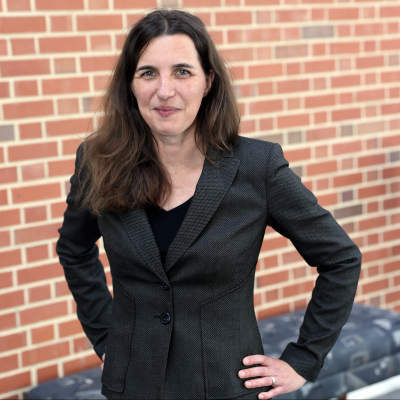Introduction
Israt Jahan Oeeshi and Stefanie Panke
This open-access textbook is a collaborative writing project and is co-authored by the students of the Asian University for Women Graduate Program in Education, course instructor Dr. Stefanie Panke and Teaching Fellow Israt Jahan Oeeshi, as part of the program coursework “Educational Technology for Strong Schools.” The Asian University for Women Master of Arts in Education is a unique program that has been launched with aspirations to empower women in education, particularly the brightest young female reformists/educational entrepreneurs dedicated to creating an impact through educational development and their leadership in society. The majority of the students who contributed to this book are Afghan evacuees and/or belong to minority communities seeking to bring reformations.
The “Educational Technology for Strong Schools” course is a project-based learning class that integrates students’ future paths as educators, policymakers, innovators, and school founders. For the last four months, students have been working collaboratively to write a book about ‘Strong Schools’ that covers multiple aspects of initiating or teaching in a secondary school. Each of the chapters reflects students’ critical ideas, observations, creative thinking, and lessons from distinguished guest speakers around the globe, with the sessions held simultaneously in the class. The chapters are also a fruitful outcome of students’ interactive discussion and mind-mapping activities throughout the session. In addition, the book remarks on a crucial part of the modern educational process, the use of diverse technology and tools in education and learning. To elaborate, we used the e-book publishing platform ‘Pressbooks,’ along with a variety of other technologies, to support multimodal content and introduce students to instructional design tools and techniques – i.e., Hypothes. for peer review, Genially for infographics, Anchor for podcasting, and Badgr for micro-credentials. The classroom set-up itself is the epitome of Education Technology in distance learning, where it’s fully digitalized with a hybrid mode of delivery, with students sitting in the class and the Professor delivering lectures via Zoom from the USA to Bangladesh, with the Teaching Fellow’s support on the ground for class activities.
Primarily comprised of three main domains named “Instructional Strategies and Engaging Pedagogies,” “Teaching and Learning with Technology,” and “Inclusion, Well-being and Community Building,” there are also multiple subdomains under these significant topics. The chapters predominantly discuss recurrent/emerging issues such as ensuring effective education during emergencies, education for bilingual learners, technology integration in education, and social-emotional learning, etc. Each of the chapters with learning objectives doesn’t only discuss the topics elaborately but also contains various multimedia, including podcasts and advice from distinguished education professionals. We made the book accessible to everyone considering a broad target audience from teachers to parents to students; anyone willing to understand the education pedagogy effectively and conveniently is welcome to go through the chapters.
Our sincere gratitude goes to all the guest speakers of this class, who have willingly signed up to share their valuable insights into the subject matter with the students, through interactive discussion sessions. Additionally, we are grateful to the education professionals, entrepreneurs, students and community people who voluntarily participated in the podcast and shared their knowledge with us, accompanied by their invaluable pieces of advice and effective exchange of dialogues.
List of the Guest Speakers:
- Dr. Pedro de Bruyckere: Session Recording
- Dr. Johannes Cronje: Session Recording
- Dr. Chryssa Themelis: Session Recording
- Dr. Rick West: Session Recording
- Dr. Tina Seufert: Session Recording
- Dr. Curt Bonk & Dr. Meina Zhu: Session Recording
- Claire Paulson: Session Recording
List of the Interview Partners:
- Andrew Swindell, PhD Candidate at UCLA: Podcast episode on the chapter “Education in Emergencies”
- Dr. Sayed Mohammad Nazim Uddin, Associate Professor at Asian University for Women: Podcast episode on the chapter “Problem and Project Based Learning”
- Fatima Qasimi, MA Student at Asian University for Women: Podcast Episode on the chapter “Educating Bilingual Learners in School”
- Dr. Stefanie Panke, Instructional Analyst at UNC-Chapel Hill, Adjunct Professor at Asian University for Women: Podcast Episode on the chapter “Design Thinking for Creativity and Innovations at Schools”
- Fatima Sharifi, an Afghan student at Asian University for Women: Podcast Episode on the chapter “Educational Technology and Mobile Learning”
- Dr. Maria Brisk, Emeritus Professor at Boston College and Dr. Jeffery Fink, Adjunct Faculty at Johns Hopkins University: Podcast Episode on the chapter “Writing Skills’ Instruction with Blended Learning Approach for K-12 Students”
- Mr. Wafil Khan, Educational Entrepreneur at Jonaki’r Alo School: Podcast Episode on the chapter “Community Building and Parents Communication”
- Ms. Nabila Afroze, Psychologist at Asian University for Women: Podcast Episode on the chapter “Social Emotional Learning and Mental Weel-being”
- Dr. David Taylor, Dean of Humanities at Asian University for Women: Podcast Episode on the chapter “Inter-group Empathy and Inclusive Learning in Secondary Schools”
- Mr. Iqbal-e-Rasol, Senior Instructor of English Language, Pre-undergraduate program, Asian University for Women: Podcast Episode on the chapter “Effective Online Learning.”


